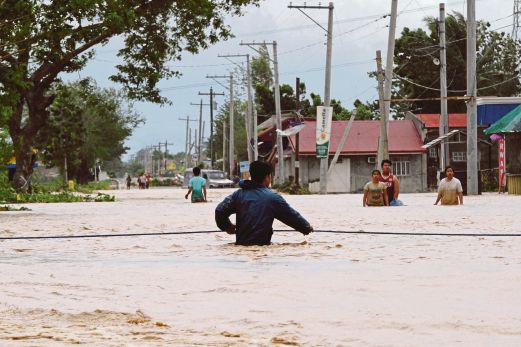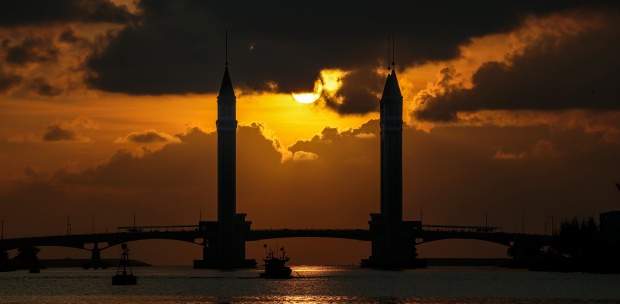In 1992, at the Rio Earth Summit in Brazil, the world adopted the United Nations Framework on Climate Change Convention (UNFCCC). The meeting set out a framework to stabilise the atmospheric concentration of greenhouse gases to avoid disturbing changes in the global climate system. UNFCCC now has 195 members, who have been meeting yearly to review the implementation of actions under the convention. The first Conference of Parties (COP) was held in Berlin in 1995. Next week, they will converge in Paris to have their 21st (COP 21).
Will COP 21 be different? Will it be the start of real cooperation among countries to put into action binding commitments to cap global temperature rise not exceeding 2°C?
Evidence on global warming has been overwhelming. Scientists have concluded that global warming is not a natural phenomenon. It is driven by human activities. The build-up of greenhouse gases is confirmed to be coming from us. It is a result of our patterns of consumption. It is also a consequence of our choice of energy to fuel our growth.
The burning of fossil-based energy has been identified as the largest source of greenhouse-gas emissions on the planet. The other major source is methane from the livestock industry. Methane is 21 times more potent than carbon dioxide from fossil burning.
The rise in world temperature is exacerbated by the fact that the usual absorber for such gases, mainly forests, has been largely decimated because of the need for development. Scientists have declared a 2°C rise as the tolerable limit. Anything above that would be disastrous.
Already the past few years have witnessed abnormal natural disasters. Super strong typhoons and extraordinary weather patterns have become commonplace. Closer to home, we were hit by huge floods last year. Kelantan, in particular, was hit hard. Many victims have yet to recover. In the Philippines, strong typhoons have become more frequent. In the United States and the Caribbean, the hurricanes have been just as devastating.
The whole world has been affected, one way or another, by abnormal weather. Unfortunately, this has yet to incite change. There are still sceptics who do not subscribe to the proposition that the world climate is indeed changing. Will they ever come to their senses?
After being stalled in previous COP meetings, many are not hopeful. They say Paris will be another stalemate. The contentious issues will remain unresolved. Central to the stumbling blocks will be the collaboration between developed and developing economies, which has remained elusive. When first mooted, the plan was for the developed economies to put into action the initiatives to reduce greenhouse-gas emissions, while developing economies would receive help from the developed countries in terms of technologies and financing to put into place mitigation and adaptation actions.
This was essentially the crux of the Kyoto Protocol. The global agreement to arrest climate change failed to garner support, especially from the developed economies. Despite earlier rhetoric of support, the Kyoto Protocol failed to obtain ratification from the countries that can make the difference.
At the Rio+20 meeting in 2012, the prospects were no different. Some developed economies had questioned the rationale of the adopted international agreement of common but differentiated principles. They essentially called for all to be treated the same.
Logically, developing countries cried foul. Such a stand was taken apparently on the ground that some developing economies, because of their sheer size, have purportedly exceeded the greenhouse gas emissions of developed economies.
These obviously referred to China and India, although the per capita emissions for both countries are still way below the per capita for developed countries. There is talk that the Paris meeting will continue to belabour this issue.
The writer is a fellow at Academy of Sciences Malaysia






